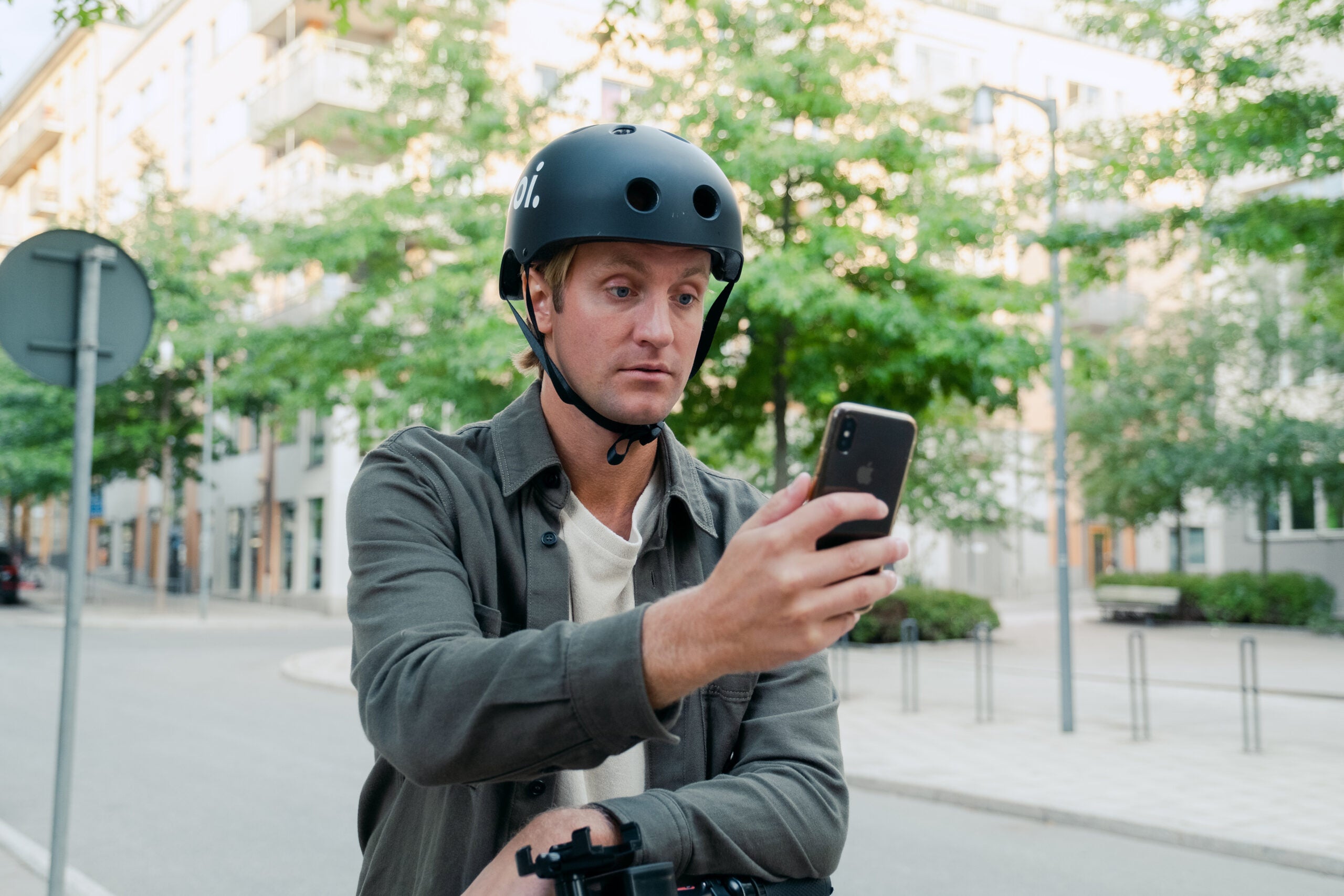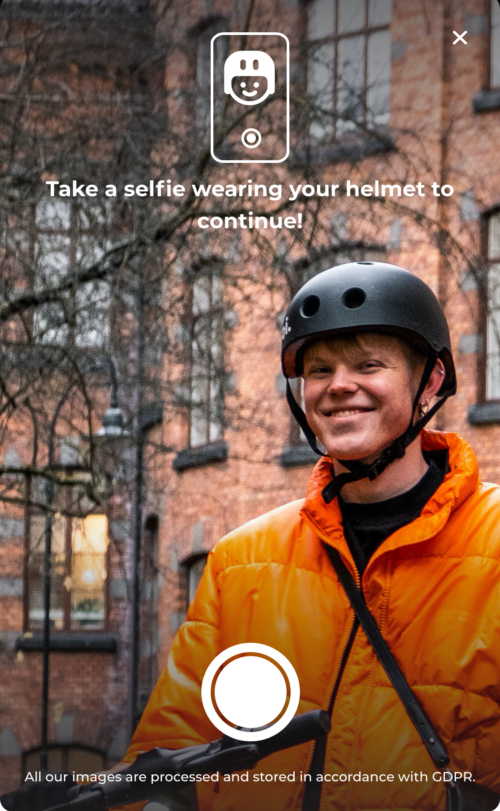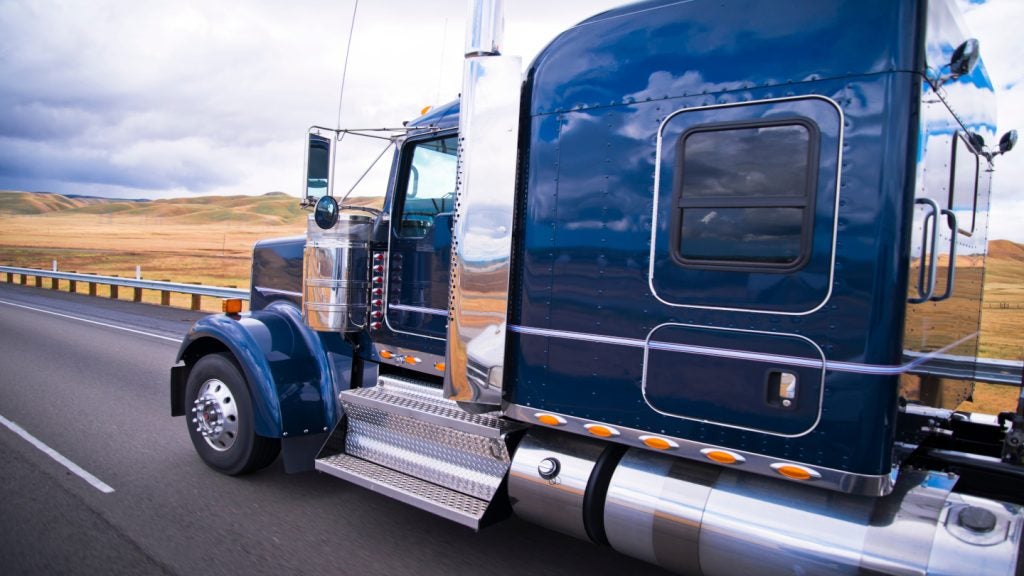
Swedish micromobility startup Voi has launched an artificial intelligence (AI) selfie tool that detects whether e-scooter riders are wearing a helmet – and rewards responsible riders with discounted rides.
Riders using the Voi mobile app to unlock an e-scooter will now be prompted to take a selfie. If Voi’s image-classifier AI detects a helmet it rewards the rider with five loyalty points at the end of the journey, which can then be used for discounted rides.
Voi said its AI selfie tool can detect the presence of a helmet with 95% accuracy.
The Stockholm-headquartered firm revealed the new feature to Verdict as part of its suite of recently released in-app features aimed at improving rider safety.
It has also introduced a reaction test to discourage people from riding e-scooters while drunk. The test, which sees riders tap a random sequence of helmets as they appear on their mobile screen, will automatically display at times when people are most likely to ride under the influence.
Riders can also choose to use the e-scooter in ‘beginner’s mode’, which caps the speed at 10mph.
How well do you really know your competitors?
Access the most comprehensive Company Profiles on the market, powered by GlobalData. Save hours of research. Gain competitive edge.

Thank you!
Your download email will arrive shortly
Not ready to buy yet? Download a free sample
We are confident about the unique quality of our Company Profiles. However, we want you to make the most beneficial decision for your business, so we offer a free sample that you can download by submitting the below form
By GlobalDataVoi told Verdict that it used cash raised from venture capital, including a recent $160m funding round, to help develop its helmet selfie tool and other recent safety features.
Fredrik Hjelm, co-founder and CEO of Voi, said: “Safety remains our top priority. The new helmet selfie offering is simply one component of our wider safety strategy, encompassing technological innovations such as these in-app features, rider education at pop-up safety events, our Ride Like Voila traffic school, and collaboration with local authorities to enforce safe riding behaviour that protects all road users.
“Voi believes this multi-pronged approach is the most effective way to keep our riders and communities safe.”
E-scooter operators turn to tech to improve safety
These safety features come as e-scooter operators look to assure regulators that the two-wheelers provide an environmentally friendly yet safe alternative mode of inter-city transport.
This summer the UK began rental e-scooter trials, with a handful of operators competing for tenders in select cities.
Voi has snapped up bids in Northampton, Birmingham, Liverpool, Cambridge, Bath and Bristol. It says that usage levels in these locations have “far exceeded” those in Europe.
However, advocacy groups, such as the Royal National Institute of Blind People, have raised concerns. They warn that e-scooters dumped on pavements pose a risk to vulnerable pedestrians, such as those disabilities, children and elderly people.
The UK trials do not permit e-scooter to be ridden on pavements. However, there have been a small number of incidents in which people have ridden e-scooters irresponsibly. In July, teenagers in Middlesbrough rode e-scooters operated by Ginger along a dual carriageway.
E-scooter operators have turned to technology to counter irresponsible use. Many operators have geo-locked their e-scooters, which means they will stop working in restricted zones such as shopping centres.
Last year, US-headquartered e-scooter firm Bird introduced a helmet selfie feature similar to Voi’s to encourage safety, while Berlin-headquartered Tier Mobility has integrated a foldable helmet into the frame of its e-scooter.

In November, Voi announced a partnership with smart city company Luna to add computer vision technology to its e-scooter fleets, which will automatically reduce speeds in heavily pedestrianised areas.
“Since we began to roll out our e-scooters in the UK back in September, safety has been of the utmost importance to us, especially as our communities adjust to this new mode of transport,” said Richard Corbett, general manager of UK and Ireland at Voi.
“That’s why we are constantly working on new technologies and complementary solutions, such as our recent collaboration with micro-mobility startup Luna to provide world-first computer vision for e-scooters, to make e-scooter use safer for everyone who shares the road.”
Read more: Tier to add sound to e-scooters to alert visually impaired






